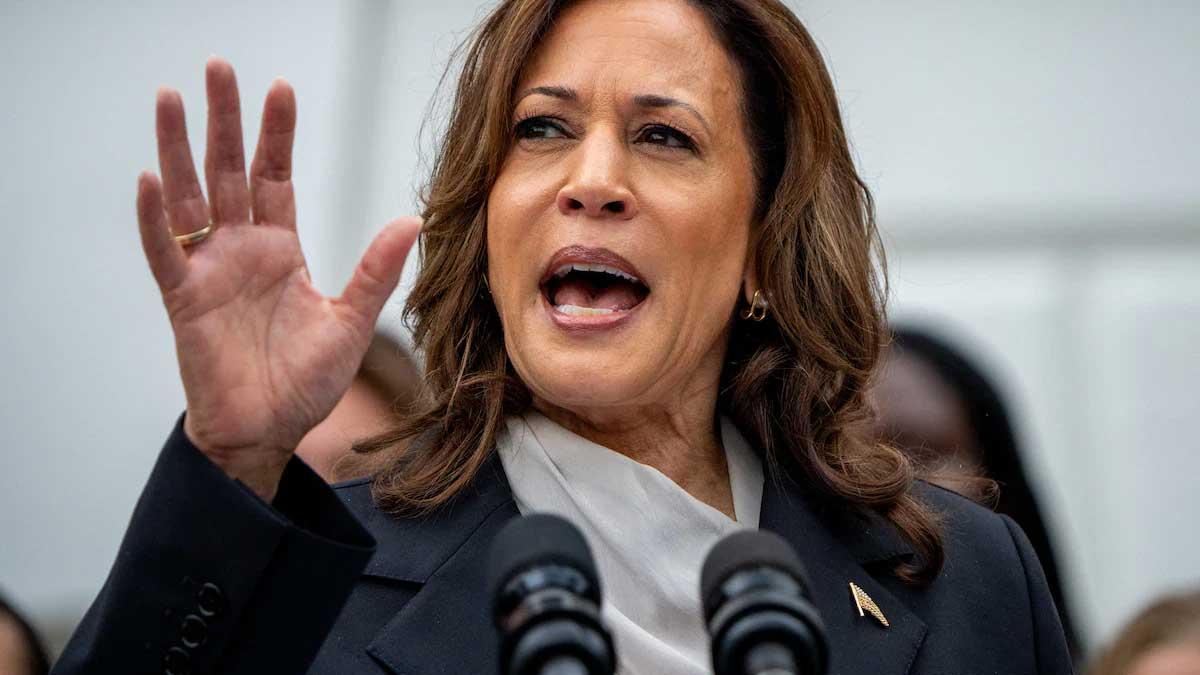The expected Democratic Presidential candidate, Kamala Harris, outpaces her Republican challenger Donald Trump by 18 percentage points in favourability ratings with Indian Americans, according to a survey conducted by Asian & Pacific Islander American Vote, or APIAVOTE.
The results of the APIAVOTE poll were cited in a Wednesday memorandum from the chair of the Harris campaign, Jen O'Malley Dillon, which offered an update on the current state of the US Presidential race.
The memo included polls on a wide range of issues, with results for Indian Americans forming part of a broader survey of Asian Americans that also included Japanese, Chinese, Vietnamese, Korean, and Filipino communities.
The poll, internally released on 10 July, came out 11 days before President Joe Biden succumbed to the pressure from fellow Democrats and halted his campaign before going on to endorse Harris for the top spot on the ticket, essentially making her the de facto nominee of the party.
The survey assessed the favorability ratings of Biden, Trump, Harris, and Nikki Haley, the former US Ambassador to the UN who, like Harris, is of Indian descent, among Asian Americans.
Fifty-four percent of Indian Americans had a "very favorable" to "somewhat favorable" impression of Vice President Harris, which is 19 percentage points higher than Trump's 35 percent.
Harris did 21 percentage points better than Haley but was behind Biden by one point, as he achieved a 55 percent favorability rating.
The head-to-head comparison between Biden and Trump has received a surprising drop in Biden's support within the community.
If the election had been held then, 46 percent said they would vote for President Biden. This is compared to 29 percent who would support Trump. Another 20 percent refused to answer or remained undecided.
This stands sharply in contrast to 2020 when, according to a poll by the Carnegie Endowment for International Peace, 72 percent of Indian Americans said they would vote for Biden, and 22 percent for Trump.
The decline likely mirrors some general lack of enthusiasm for the second term of President Biden, despite his positive perception.
The APIAVOTE poll also showed 55 percent of Indian Americans said they would vote for Democrats in the US Senate races and 52 percent for Democrats running for the House of Representatives.
The Republicans, however, have made some inroads into the community, with 29 percent saying they would vote for Republicans running for the Senate and 31 percent for Republicans in the House races.
The Indian American population is between 4.16 million to 4.4 million, nearly 1.4 percent of the US population of over 333 million.
Out of this, 2.62 million are US citizens and 1.9 million are registered voters. The number forms 0.82 percent of the total registered voters across the country. What may seem a really small number actually reflects an effective community.
What was once a reliably Republican state is now reliably Democratic—thanks in large part to the large population of Indian Americans and other foreign-descended residents in the northern region near Washington.
The community believes it can make a difference in swing states, which often decide presidential elections by narrow margins—Biden won Wisconsin by a 0.63 percent margin last time.
In the memo, O'Malley Dillon wrote that 2024 would be a "tight" race between Harris and Trump.
Every vote matters when a race is tight.
Read also | Macron Delays New PM Appointment Until After Olympics
Read also | Kamala Harris Gains Delegate Majority as Trump Campaign Blames Her for Border Issues


















